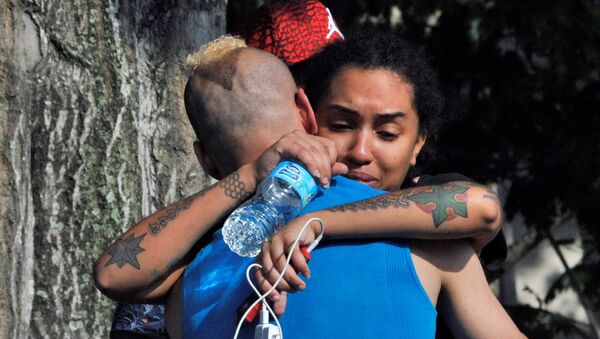According to the woman, who was briefly married to Mateen, he displayed signs of emotional trouble and a volatile temper. The woman, who spoke on the condition of anonymity, reportedly said that he beat her repeatedly.
"He beat me. He would just come home and start beating me up because the laundry wasn't finished or something like that," she said, adding that "he was not a stable person."
Apparently, Mateen developed his temper during his marriage, as his ex-wife said that initially, "he seemed like a normal human being."
She also pointed out that Mateen was not deeply religious. During the six months that the two were married, he showed no signs of affection towards radical Islam.
According to the woman, Mateen worked as a security officer at a facility for juvenile delinquents and often spend time exercising at a nearby gym.
Mateen later had a son with another woman who also appears to have left him. She reportedly declined to give any comments.
Apparently, Mateen turned towards religion after a divorce, as his friend, who also spoke on conditions of anonymity, called him "quite religious."
Mateen attended the Islamic Center of Fort Pierce for several years, as he came regularly to pray, according to the center's Imam Shafiq Rahman.
"He would come and pray and leave. There was no indication at all that he would do something violent," he said.
On a contradictory note, Rahman's son described Mateen as an "aggressive person".
The FBI believes a motive for Mateen's actions in Orlando was religion.
According to House Intelligence Committee Ranking Member Adam Schiff, "the fact that this shooting took place during Ramadan and that ISIS [Daesh] leadership in Raqqa has been urging attacks during this time, that the target was an LGBT night club during Pride, and — if accurate — that according to local law enforcement the shooter declared his allegiance to ISIS, indicates an ISIS-inspired act of terrorism."




